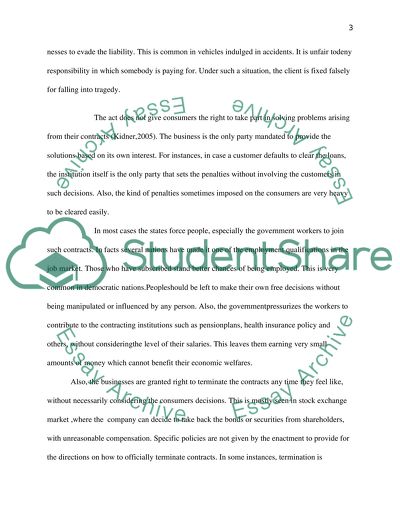Cite this document
(“The Unfair Contract Terms Act 1977 is misleadingly named. It only Essay”, n.d.)
The Unfair Contract Terms Act 1977 is misleadingly named. It only Essay. Retrieved from https://studentshare.org/law/1643537-the-unfair-contract-terms-act-1977-is-misleadingly-named-it-only-deals-with-a-tiny-subset-of-terms-and-does-nothing-to-make-sure-that-contracts-are-fair
The Unfair Contract Terms Act 1977 is misleadingly named. It only Essay. Retrieved from https://studentshare.org/law/1643537-the-unfair-contract-terms-act-1977-is-misleadingly-named-it-only-deals-with-a-tiny-subset-of-terms-and-does-nothing-to-make-sure-that-contracts-are-fair
(The Unfair Contract Terms Act 1977 Is Misleadingly Named. It Only Essay)
The Unfair Contract Terms Act 1977 Is Misleadingly Named. It Only Essay. https://studentshare.org/law/1643537-the-unfair-contract-terms-act-1977-is-misleadingly-named-it-only-deals-with-a-tiny-subset-of-terms-and-does-nothing-to-make-sure-that-contracts-are-fair.
The Unfair Contract Terms Act 1977 Is Misleadingly Named. It Only Essay. https://studentshare.org/law/1643537-the-unfair-contract-terms-act-1977-is-misleadingly-named-it-only-deals-with-a-tiny-subset-of-terms-and-does-nothing-to-make-sure-that-contracts-are-fair.
“The Unfair Contract Terms Act 1977 Is Misleadingly Named. It Only Essay”, n.d. https://studentshare.org/law/1643537-the-unfair-contract-terms-act-1977-is-misleadingly-named-it-only-deals-with-a-tiny-subset-of-terms-and-does-nothing-to-make-sure-that-contracts-are-fair.


